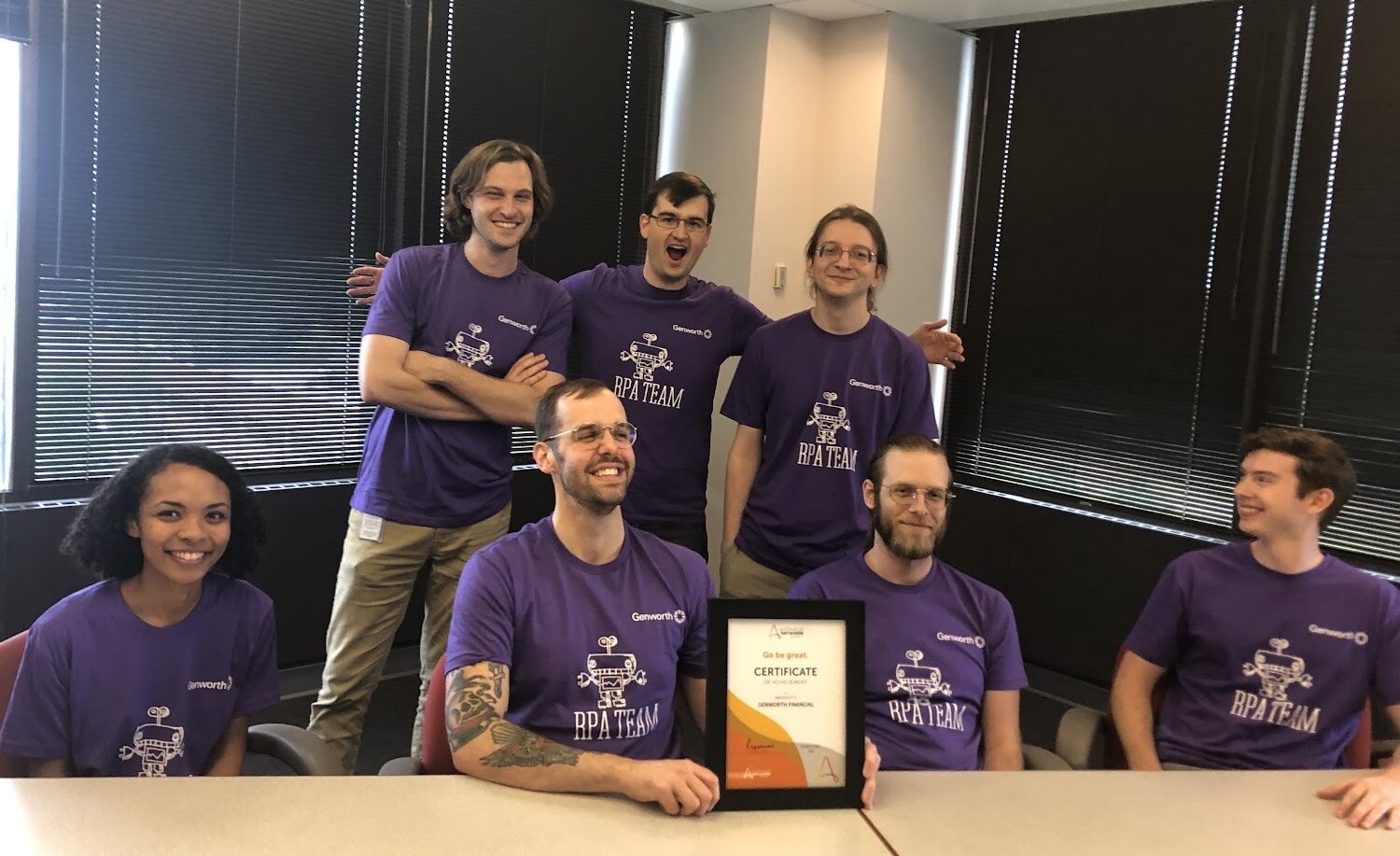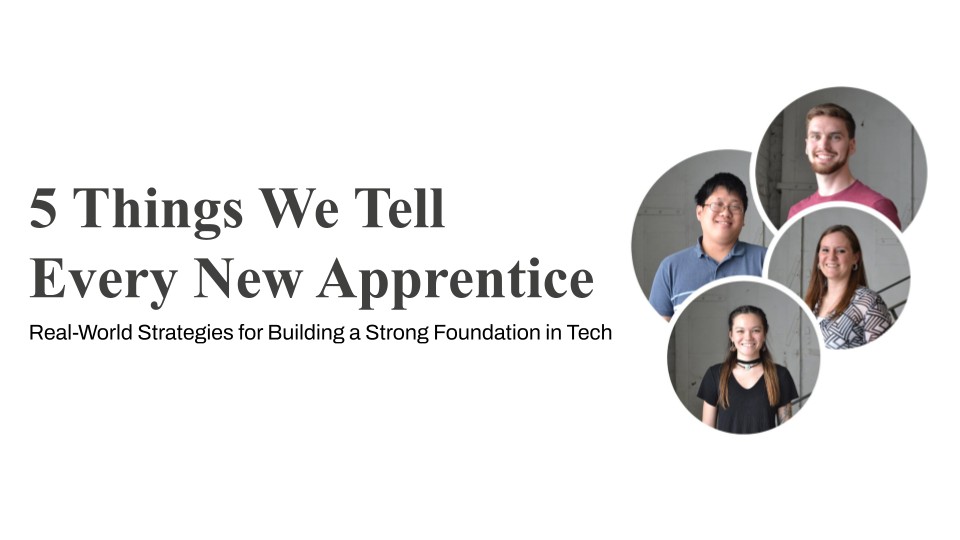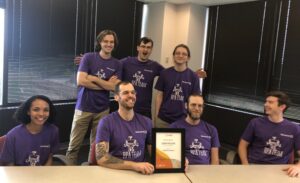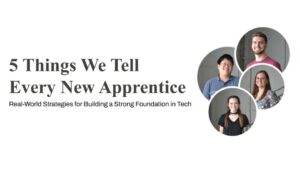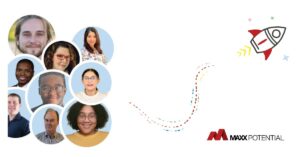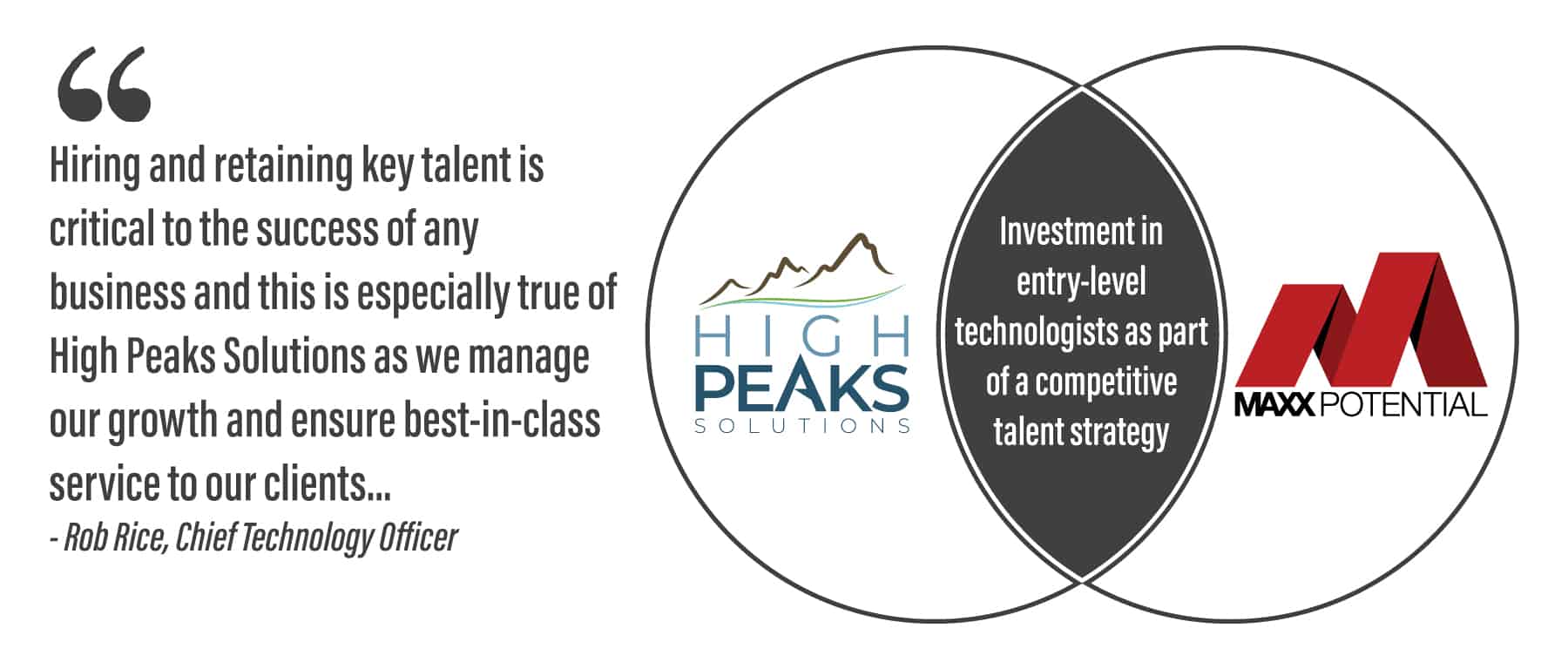Commit to Building Your GitHub Presence in the New Year
By MAXX Potential
- Posted:
- Apprenticeship

git commit -m 'growing and showing your skills'
“I’m delighted every time I discover a GitHub profile linked to a resume.” John Spauls, MAXX Potential Operations Director, said. “It’s a window into a technologist’s hard skills and interests.”
Whether you’re happy with your current role or you’re advancing your tech career, committing to building your GitHub presence throughout the new year ensures that you continue to grow and show your skills.
At MAXX Potential, we love to see projects linked to a resume or LinkedIn. The tech industry changes so much that seeing other technologists commit to their own growth through projects drives the passion of our team.
So what does it take to commit to building your GitHub presence?
We hoped you’d ask, and we’re ready to discuss ways to determine your project ideas, set a goal, create a task list, track your progress, and decide where to share the repositories.
Determine Programming Project Ideas
The projects you work on are entirely up to you. That can feel overwhelming, and if you feel that way, you’re not the first. How do you decide?
One of the best ways to figure out what to work on is to follow your curiosity.
Open up a new document or note and spend a few minutes considering the questions below. Type out your answers so you have them as a touchstone later on in your process.
Questions to Ask Yourself
- What am I excited to work on?
- What system would I like to figure out?
- Do I have a specific area that I want to gain experience in?
- What are my career goals and what project helps with those goals?
- Are there any existing public GitHub repositories I’d like to build out?
Sometimes your project idea might present itself to you. For one of the MAXX Potential Apprentices, the project idea came from a social media connection. Let’s hear it in his own words.
“My favorite author posted on his Facebook page,” Robert Clemo, MAXX Potential Apprentice shared, “He had a project that had been on the back burner for years, and he wanted to know if anyone who followed him had any cloud, web, and database knowledge.”
Clemo and others responded to the post, listed their capabilities, and specified their time availability for the project. From there, Clemo explained, “Together, we collaborated on the project to bring it to reality.”
Your project ideas can come from anywhere, and some project ideas can become a collaborative project. Let’s explore project collaboration more!
Collaborate on a Software Development Project
One of the best ways to develop a larger project is to work on a team. While we all may have bad memories of school projects, your project alliance can skip some of those cringe moments.
GitHub makes it easy to partner on projects with their “git clone” and “git fork” commands, and you can even build off of someone else’s project, rather than do a strict collaboration.
Landing on an interesting project with great team members can take time, and MAXX Apprentices have different experiences of how to find project collaborators.
“I’ve done a few freelance projects for friends, and those conversations went like, ‘I saw these projects you made and I need something like it.’” Parker Benbow, MAXX Potential Apprentice discussed his collaboration on projects. He continued, “basically, they’d have an idea and then say, ‘could Parker build that?’”
Meanwhile, Heidi Jay, MAXX Potential Apprentice, has had a hand in gathering a team of people together to work on a project. She shared, “I find project success happens when you have a designated leader who helps organize the team and can guide the process a bit. Collaborative projects can be really rewarding and fun.”
Teamwork on projects can be exhilarating because you don’t face the project problems alone, but it can have its own set of additional problems because you’re working with other people you may not always agree with throughout the timeline. However, from an employer standpoint, project collaboration can demonstrate the hard and soft skills they seek in a future employee.
Set a Goal for Growing Your GitHub Presence
Since you balance life responsibilities alongside your goals, it’s important to come up with a plan for your GitHub presence. It might not make sense to have the goal of finishing a new project every month, but you may want to shoot for a total of six projects for the year. Set attainable goals and maybe some stretch goals too.
For example, a common new year resolution is setting extreme fitness goals such as losing 50 pounds or getting a 6-pack. Resolution-setters quickly discard the goal because they didn’t make a plan with steps. A more attainable, smarter goal is saying, “I will go on three 20-minute walks each week.”
When you’re deciding on your goals for growing your GitHub presence, consider what it takes to reach each goal.
Create a Detail-Oriented Task List
For growing your GitHub presence, consider outlining what it will take to finish a new repository every other month, and then from there, create an individualized task list for the project. The more detailed you can write your task list, the better you can stay on top of it.
Just as Heidi shared above, it’s important to have a designated leader who will guide the team, and even if you’re doing a project solo, you want to create that same level of guidance for yourself even when it’s self-directed.
Your task list gives you the overarching vision for each project so you can start and stop as you need when life gets in the way.
Track Your Progress
Keeping track of your task list completion becomes the next component. While GitHub provides a progress bar, it can’t keep track of the details of your project.
You need to stay plugged into your project vision.
Whether you opt for a notebook or you prefer other platforms, some good tools include Asana, ClickUp, MindMeister, Trello, or AirTable. Each platform allows you to customize your task list in as much detail as you want. You’ll know exactly where you’re headed, where you stopped, and what’s next.
“AirTable is my go-to tool for organization because it provides multiple views of the information I’m working with, and it’s highly customizable.” Tucker Mahan, MAXX Potential Talent Director, shared.
Tracking your progress throughout the project provides you with a roadmap to finish the project as well as the reward of seeing your project come together.
Set Project Time in Daily Life
What does it take for you to actually do the work for your project? Most of us have big ideas but implementing them is a whole other battle. If you struggle to focus on your project, even though you want to do the work, you’re not alone.
For example, a common problem many novel writers experience is bookmarking time for writing and then not writing a single word. This is where routine can help. Some writers swear by their routine of preparing a cup of tea, lighting a candle, and tuning into a music playlist. This routine smooths the way for an hour of productivity.
You may find that starting some type of routine before you work on a project can get you into the right headspace for the work ahead.
Publish Your GitHub Repository Publicly
To publish from the start or to publish upon project completion can be a point of discussion.
The answer goes back to your own goal: do you plan to use your GitHub as a portfolio or do you hope publishing will keep you accountable to finishing?
A finished GitHub repository becomes a part of your online portfolio, and an unfinished project that’s published will be viewable by all. So commit to completing your GitHub repositories!
At MAXX Potential, we seek individuals who create their own learning opportunities and dive into projects to expand their knowledge. Do you want to start or advance your tech career? Join our next Career Lab!
MORE POSTS
Moving from Imitation to Creation
Building Strong Teams Through Smart, Human-Centered Matching
Real-World Strategies for Building A Strong Foundation in Tech


